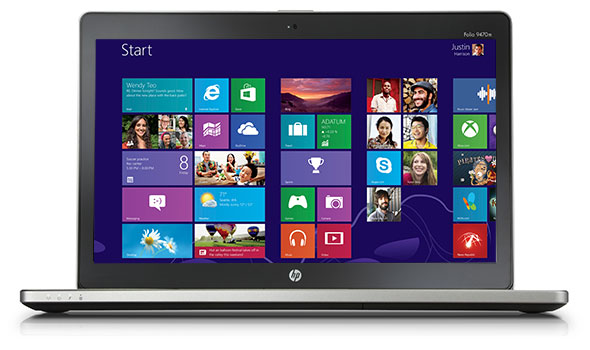HP on Tuesday unveiled the EliteBook Folio 1020, a new family of business-oriented notebook PCs it claims are the thinnest and lightest in the industry so far.
The HP EliteBook 1020 and the ultra-lightweight HP EliteBook 1020 Special Edition both offer an ultrathin form factor measuring just 15.7mm, and they are designed with enterprise mobility in mind. The Special Edition version uses a blend of magnesium-lithium alloy and carbon fiber to achieve a weight of only 2.2 lbs.
With up to 9 hours of battery life and a 12.5-inch display, both Windows-based devices feature solid-state storage and an Intel Core-M processor They are designed to pass military-grade testing for drops, shocks and exposure to extremes in temperature and humidity.
The HP EliteBook Folio 1020 Standard Edition is due to be available in February, with the Special Edition following in April. Pricing has not yet been set.
Business Appeal
The forthcoming new machines clearly aim for the commercial space, said Craig Stice, senior principal analyst for compute platforms at IHS iSuppli.
Commercial markets are still holding strong within the PC industry, so “there is a need for new technology and form factors for corporate refresh,” he told TechNewsWorld. “Being of ultrathin and light form factors, they certainly will appeal to the business traveler or someone who requires a lot of mobility.”
Promising less noise and more modest power usage, the devices’ fanless design also will be appealing, he predicted, as will the Special Edition’s lightweight carbon fiber material.
“Business professionals are looking for a system that is rugged, stylish, ultramobile and packed with performance,” Stice said. “These new HP EliteBook 1020 series products, at least from the high-level, seem to fit the bill.”
A Question of Price
Both EliteBook 1020 devices come equipped with HP’s newly designed Premium Keyboard, as well as enterprise-class security that includes certified Trusted Platform Module 1.2/2.06, preboot authentication, a fingerprint reader, and the company’s Sure Start self-healing BIOS.
A touchscreen is optional in the standard HP EliteBook 1020.
“I really like the specs on the new EliteBooks,” said Jim McGregor, founder and principal analyst with Tirias Research.
“The design features a smaller display than many traditional enterprise-class solutions,” he told TechNewsWorld.
“I find that the 11-to-13 range is optimal because you can still have a normal keyboard, along with a more rugged design — very thin and light — and the latest manageability features,” McGregor said. “My only concern is the price.”
Typically it’s the executives at large enterprises who “get the coolest new toys, while everyone else is stuck with more price-conscious solutions,” he added. “Will enterprise customers be willing to pay for these impressive specs? I guess we’ll have to wait and see.”
A Time for Rebranding
The new EliteBooks are “a kind of midrange solution for businesses,” said Jeff Orr, senior practice director at ABI Research.
“They’re not the largest or most powerful, but HP is emphasizing a lot of buzzwords that are going to appeal to an enterprise,” he told TechNewsWorld, “especially for users looking for a versatile system that’s not too big.”
In general, HP’s current challenges have a lot to do with positioning itself in a very crowded market beset by a “tepid feeling” about traditional computing in general, Orr suggested.
“As HP looks to rebrand itself and reestablish what HP means to both consumers and businesses, this is an important announcement,” he said. “It’s good timing for HP to be focused on the enterprise.”
HP “did a good job of talking about value-add through their software and services,” Orr noted, “balancing the hardware, specs and speed with being able to provide complete solutions where HP is a viable partner for the enterprise.”






















































